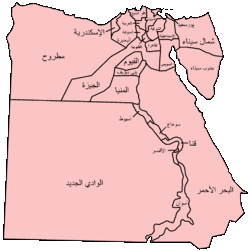TEL AVIV: Popular uprisings sweeping through Arab states will bring positive change in the "long run," Israeli Defense Minister Ehud Barak said on Thursday, despite his country’s fears of instability.
Accustomed to working with entrenched regimes for decades, Israel has looked on with dismay as mass protests toppled the leaders of Egypt and Tunisia and threatened the assumptions underpinning its foreign policy.
But Barak struck a mostly optimistic tone, describing a stunning political "earthquake" that could deliver democracy and freedom to a younger generation in the Middle East.
"Historically speaking, it’s a moving and inspiring phenomena, [which is] clearly promising for the future of the Arab people, for the young generation in the Arab world," he said at a joint news conference with US Defense Secretary Robert Gates.
He said the Jewish state would have to stay on guard for militants trying to exploit the unrest and that the country had to bear in mind the experience of other revolutions, in which "idealism" gives way to violent radicals ready "to kill" to take power.
"I feel that we have to be careful and open-eyed in the short term to minimize negative developments and minimize risks for stability, but in the long-run it is an extremely positive phenomena," Barak said.
Not since the collapse of the Ottoman Empire or the end of French colonial rule had the region seen such a dramatic upheaval, said Barak, a former prime minister and top ranking military officer.
He said it was crucial that outside countries work to promote a stable transition as change sweeps the region and "to minimize chances of extremist groups from coming to power."
Barak spoke as tensions spiked a day after a bombing in Jerusalem left one dead and as Gaza rockets pounded Israel which responded late Thursday with air raids the Palestinians say wounded three people.
Barak vowed to respond to the attacks, but Gates suggested Israel had to avoid taking action that could derail the course of the uprisings, which he said have been focused solely on calls for democracy and economic opportunity.
"In virtually every case the theme of those demonstrations has been directed inward at problems in those countries," he said.
Israel should try to avoid "anything that allows extremists or others to divert the narrative of reform," Gates said.
The US defense secretary also said mounting turmoil in Syria and other countries was the result of "the unmet political and economic grievances of their people."
Gates, who flew to Israel after a visit to Cairo, held up Egypt as a positive example in which the military chose not to fire on protesters – who eventually succeeded in forcing Hosni Mubarak to step down as president last month.
"Some of these countries are dealing with it better than others," he said.
By standing on the sidelines, the Egyptian military "empowered a revolution," he said.
Gates pointedly contrasted Egypt’s approach with Syria, where activists say 100 protesters were shot dead on Wednesday.
"The Syrians might take a lesson from that," he said.
Barak suggested that turmoil in Syria and elsewhere carried risks but also potential openings for peace.
"And we have to be alert to be able to seize those opportunities the moment they emerge, rather let them slip out of our fingers and face the uncertainties of a deeper chaos in the Middle East," he said.
Amid concerns in Israel that Islamist political groups could prevail in elections expected later this year in Egypt, Gates said he came away from his talks in Cairo "reassured" of Egypt’s commitment to its peace agreement with Israel.
He said the ruling military council and interim government "take the relationship with Israel seriously."

